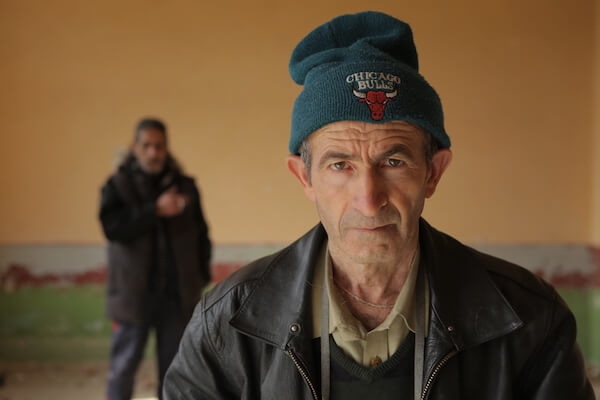Bradley Manning is an American hero who against great odds and without regard to his personal safety defied US secrecy laws.
In recent months, his actions have increasingly been viewed in a more favorable light. By the end of July, in a sudden change of direction, Congress investigated the National Security Agency (NSA). Members of Congress who had received classified information about this agency’s spying on American citizens held hearings and were allowed to discuss these controversial activities with the public. Prior to the leaks by Manning and his successor, Edward Snowden, legislators on Capitol Hill did not have the freedom to publicly air the specifics of their grave misgivings about the recent drastic changes in the way America carries out surveillance activities.
The domestic spying activities undertaken since 9/11 were classified, something that forced Congress into the shadows in any public debate about them. Instead of hints that the NSA was watching us all the time, there is now public confirmation, and to no one’s surprise many members of Congress and their constituents do not like this being a nation where innocent citizens are tracked by the government.
As the public learns more, we should credit Manning’s gumption. Being five-foot, two-inches tall and identifying as gay and gender-nonconforming in high school and then on the frontlines in Iraq had to be a daunting challenge. As he entered boot camp, “The army… threw me in the forests of Missouri for 10 weeks with 50 twanging people hailing from places like Texas, Alabama, Georgia, and Mississippi … joy,” he emailed a friend adding, “What the hell did I put myself through?”
But this was nothing compared to the isolation he endured after his arrest. For nearly a year, he spent 23 hours a day alone in a cell with a guard watching and the lights always on. The public support that popped up immediately for Snowden — something Russia surely factored into its decision to grant him asylum — came in response to the harsh treatment imposed on Manning. The military industrial complex showed its fangs, and people all over the world were repulsed.
The notion that governments lie is news only to the uneducated, but the government’s response in the Obama years has been to threaten the truth-seekers with sentences reserved for murderers and traitors. This is a risky approach that could well backfire. Chilling free debate can produce brain-lock and stupid decisions. It prevents alternative strategies from being honestly explored.
Consider this folly. Bin Laden spent $250,000 or so to topple the World Trade Center and kill thousands. To retaliate, the US spent trillions — whether one or three trillion is debated — and about 8,000 troops in our allied coalition were killed in Afghanistan and Iraq. Thousands more endure crippling disabilities, and the hundreds of thousands of deaths of Iraqis and Afghanis increased the carnage. It is no wonder that many consider our response to 9/11 ill advised and believe we need whistleblowers to reveal the truth.
In a healthy democracy, many members of the public refuse to accept that lies are inevitable. They insist there is a moral universe that requires we scorn liars. And we expect the media, activists, academics, and — yes — public officials to help us uncover the truth. The aggressive prosecution of Manning disrupts this normal political discourse. Supporting him is good for America, while harsh penalties for disclosing secrets is bad policy that will chill the pursuit of answers needed to inform our decision-making.
Public attitudes toward the surveillance state have changed dramatically in the 11 years since the Trade Center attack. A coalition of Republicans and Democrats in the House nearly succeeded in defunding NSA surveillance in a recent vote. Manning and Snowden touched an instinct that many of their fellow citizens share, and revealing that truth is a good thing.
The harsh charges leveled at Manning smack of extremism and raise legitimate and fundamental questions about whether our liberties are at risk. Yochai Benkler, a Harvard Law professor, reached this conclusion after reviewing documents prepared by the military in 2008. In a position paper developed that year, the Department of Defense argued, “The identification, exposure, termination of employment, criminal prosecution, legal action against current or former insiders, leakers, or whistleblowers could potentially damage or destroy this center of gravity and deter others considering similar actions from using the Wikileaks.org Web site.” Here is DoD declaring war on “former insiders, leakers and whistle blowers,” the people who bring bad policy to the public’s attention. This is clear evidence that the Pentagon uses law enforcement and other powers to intimidate its critics.
Benkler brought this 2008 memorandum to the attention of the public, and he testified on behalf of Manning. He believes Manning’s abusive treatment was consistent with the government’s core tactic, to undermine WikiLeaks and to increase the fears of and the constraints on potential leakers. The prosecutor in the Manning case, he pointed out, said the military would bring the same charges against the New York Times in similar circumstances.
That warning alarms Benkler, who noted, “Freedom of the press is anchored in our Constitution because it reflects our fundamental belief that no institution can be its own watchdog.” The military’s position, he argued, “makes the Manning prosecution a clear and present danger to journalism in the national security arena.” The most serious charge against Manning, after all, carried the death penalty — though on that score, he was recently acquitted.
Republics are supposed to govern “lightly” in contrast to the harshness of absolute monarchs. There is nothing light about the penalties that have hung over Manning these past three years. His courage deserves support, as does Snowden’s. This nation has a dire need to open up public discussion of how we conduct surveillance and security activities. Draconian penalties cannot be allowed to cow the public into silence.

































